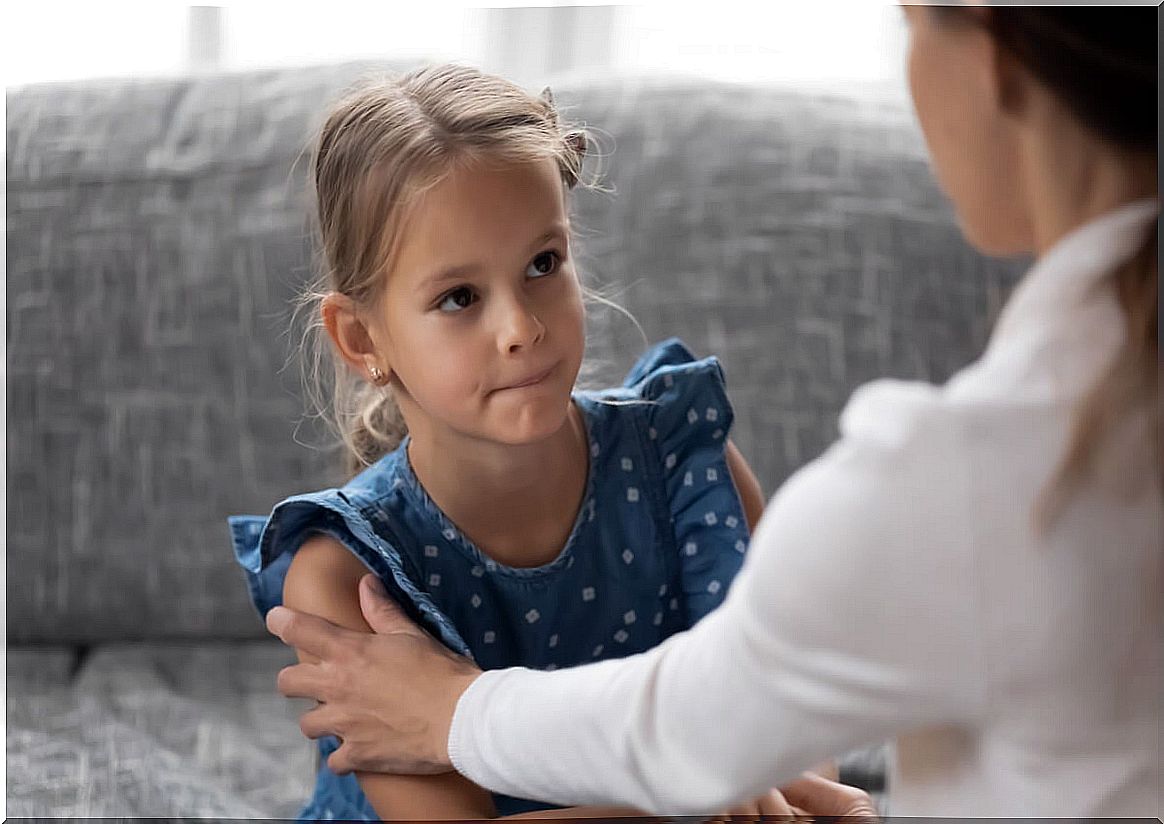Using Your Children To Manipulate Your Spouse

Unfortunately, many times the conflicts of a couple end up involving the children, even if they have nothing to do with this adult problem. In these circumstances, and very frequently, minors are used to manipulate the spouse. The first thing to know is that this is considered a form of abuse.
Sometimes the resentment between parents is stronger than the love and responsibility they have for their children. For this reason, and despite the serious damage they cause them, they end up using them to manipulate their spouse.
Usually they try to get them as allies to hurt the other parent or to further their interests. The parents should know that this is a form of violence against children.
Using your children to manipulate your spouse has negative consequences on the psychological development of minors. Sometimes these guys will have to deal with the effects of this situation for life.

Manipulate the spouse through the children
The ways of using the children to manipulate the spouse are very varied. Sometimes they are subtle and other times explicit.
Dr. Ana Cristina de la Cruz, psychologist and teacher at the National University of Córdoba (Argentina), as well as many other authors, defines these parents as “alienating parents.” Based on various studies, he points out that there are several behaviors that are typical of this type of parents. The most common are the following:
- Refusing to give information about the children.
- Devaluing and insulting the other parent in front of the children.
- Make decisions about the children, without consulting the other parent.
- Involve the school in problems.
- Prevent the children from talking to or seeing the other parent.
- Involve other family members or friends in your campaign to discredit the other parent.
- Threatening the children with punishment or the like, if they have a favorable attitude towards the other parent.
- Devalue the contributions or gifts that the other parent makes.
- Use the child to send messages to the other parent.
- Victimizing in front of the son so that he turns against the other parent.
Generally speaking, it is about limiting the child’s ability to build a healthy relationship with the other parent. Also to achieve individual purposes using the effect that children cause on the spouse or ex-spouse.
The motivations of manipulative parents
It is obvious that the intention to manipulate the spouse, especially through the children, is not born within the framework of a healthy relationship. The most common is that this type of behavior is adopted when there is a breakup or divorce, but it can also be implemented for the opposite: maintaining a deteriorated relationship.
In the first case, the manipulative father usually has a deep resentment against his ex-spouse. Sometimes because it was the other who ended the relationship. Also because it is thought that it is economically disadvantaged and the arrangements in this regard are not considered fair. Likewise, there may be jealousy because the other person has a new partner.
In the second case, it is often believed that using the children to manipulate the spouse is something that is done “for a good cause. ” In this case, the situation is more complex because the children will feel emotionally committed to that goal of not allowing the relationship between their parents to end.

The consequences for children
The report, already cited by Dr. Ana Cristina de la Cruz, indicates that when one of the parents tries to separate their children from the other parent, feelings of anguish, uprooting, loneliness and frustration appear. In the most serious cases, depressive tendencies, suicidal ideas, anger, helplessness, disorientation and chronic health disorders arise.
When children are not physically separated from the other parent, but play a role in the relationship crisis experienced by their parents, the feelings are not so different. However, in this case there may be a strong feeling of guilt, since they are delegated the mission of preventing the relationship between the parents from ending.
Many times they come to feel hatred for the other parent as a way out of the labyrinth in which they find themselves. This often leads to difficulties in adult life identifying and expressing their feelings. Likewise, they tend to transfer this instability to their own relationships in the future.









